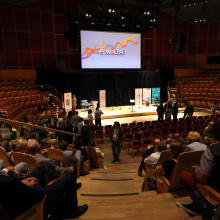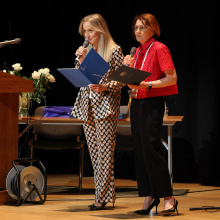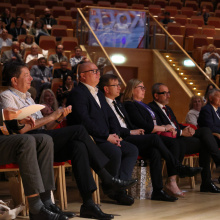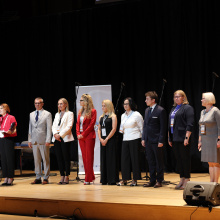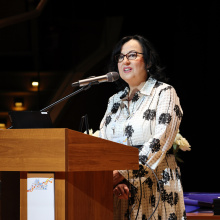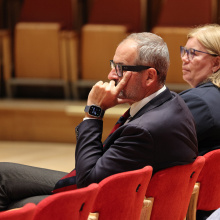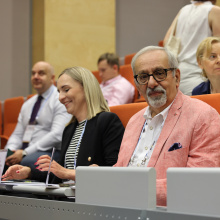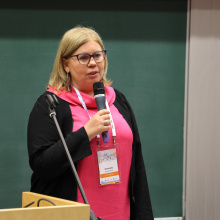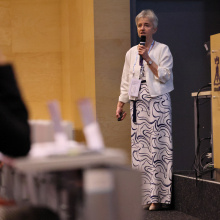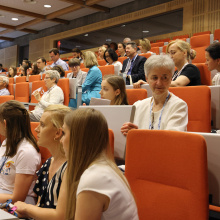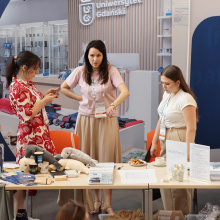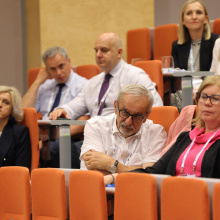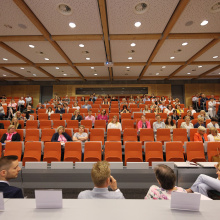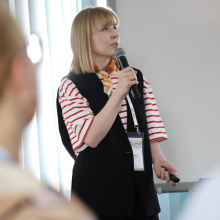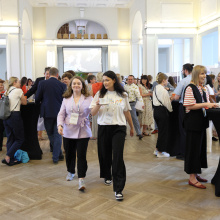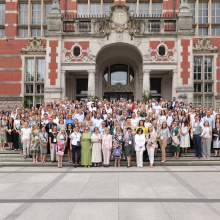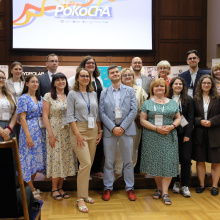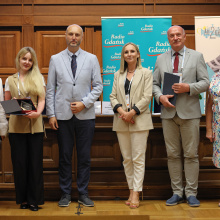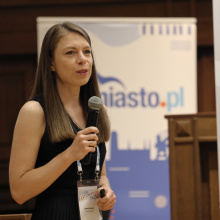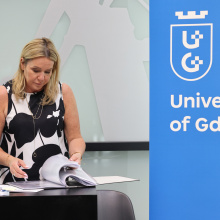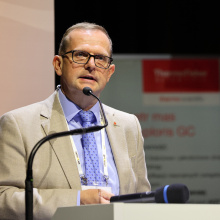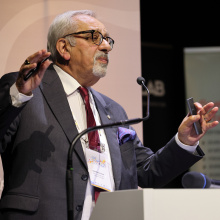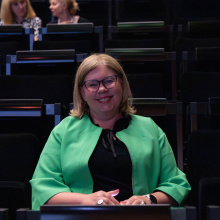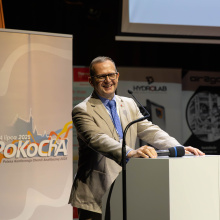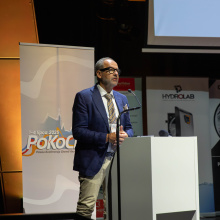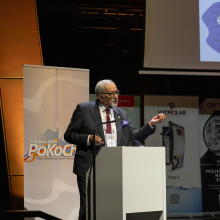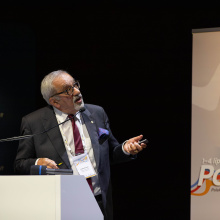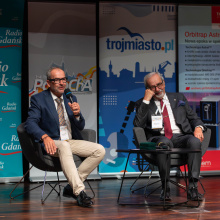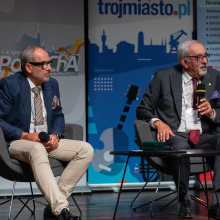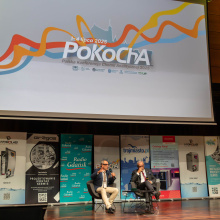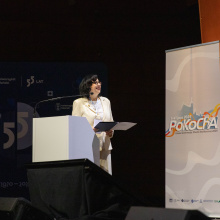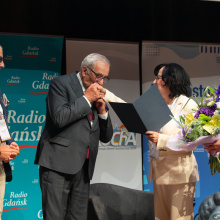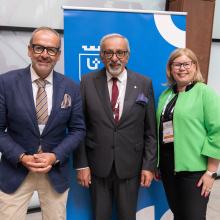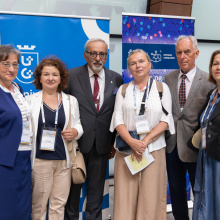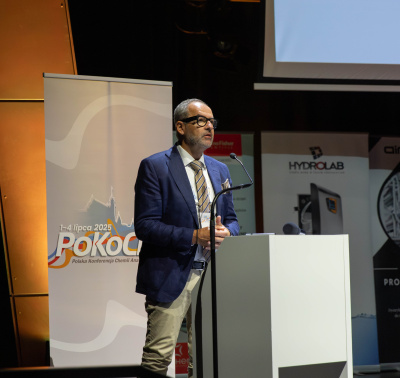
Fot. B. Jętczak
PoKoChA 2025 is behind us! Four days (1-4 July 2025) of inspiring lectures, panel discussions, and poster sessions devoted to the latest achievements in analytical chemistry were crowned with the jubilee of 50 years of the scientific work of Professor Bogusław Buszewski, whose contribution to the development of the discipline - both as a scientist and mentor to next generations of researchers - cannot be overestimated.
‘For me, as the rector of the University of Gdańsk and a chemist who graduated from the Faculty of Chemistry at the University of Gdańsk, this conference is of particular importance. The university is celebrating its 55th anniversary, and the scientific community of chemists has the opportunity to meet again, after 30 years, right here with us,’ said the Rector of the University of Gdańsk, prof. dr hab. Piotr Stepnowski. ‘In addition, we also had the pleasure of celebrating the 50th anniversary of the scientific work of my mentor, an outstanding researcher and invaluable teacher, Professor Bogusław Buszewski, in Gdańsk. I felt honoured to be able to host this ceremony.’
The tradition of Polish Analytical Chemistry Conferences, organised under the auspices of the PAS Committee on Analytical Chemistry, dates back to the 1950s. Currently, the event, organised every three years in different cities in Poland in cooperation with prominent research centres, plays an important role in consolidating scientific communities involved in analytical chemistry and is an important platform for exchanging information and experiences, sharing the latest research results and establishing cooperation. The conference was held in Gdańsk for the first time in 1995, so it is returning to the Motława River after 30 years! The co-organisers and hosts of PoKoChA 2025 were the Faculty of Chemistry of the University of Gdańsk and the Faculty of Chemistry of Gdańsk University of Technology, with the support of the Foundation for the Development of the University of Gdańsk (FRUG).
‘We are very proud to be able to co-organise an event that is so important for the scientific community of chemists,’ said the Dean of the Faculty of Chemistry at the University of Gdańsk, dr Beata Grobelna, prof. UG. ‘The conference was truly inspiring and full of valuable presentations. For me personally, the added value was the opportunity to talk to scientists representing analytical chemistry. I hope that the conference participants, like me, have their heads full of ideas for further research.’
The opening of the conference took place in the beautiful interiors of the Polish Baltic Philharmonic. On the second day, the event was hosted by the modern walls of the Faculty of Chemistry at the University of Gdańsk. The third day was devoted to deliberations on the campus of the Gdańsk University of Technology. The closing ceremony took place in a location symbolic for Gdańsk: the European Solidarity Centre.
Day 1 - opening of the conference
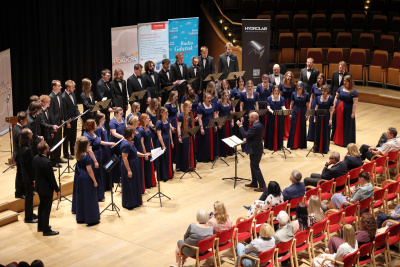
Fot. J. Kwiatkowski
Before noon on the first day of the conference, thanks to the kindness of our sponsors - Altium, Bionanalytic and Shim-pol, interested participants were able to take part in workshops on targeted and non-targeted analysis in food, environmental, and metabolomics research, challenges in the field of mass spectrophotometry and troubleshooting in high-performance liquid chromatography (HPLC).
After the official opening of the event, prof. dr hab. inż. Małgorzata Iwona Szynkowska-Jóźwik, Chairwoman of the PAS Analytical Chemistry Committee, addressed the guests with a few words. The plenary opening lectures were given by prof. dr inż. Janusz Pawliszyn from the University of Waterloo in Canada (Facilitating High Throughput and On-site Food Contaminants Residue Determinations with Thin Film SPME Technologies) and prof. dr hab. inż. Ryszard Łobiński from the French National Centre for Scientific Research and the Warsaw University of Technology (Metallomics: how mass spectrometry has changed the approach to trace metal analysis).
The artistic side was provided by the choirs of the University of Gdańsk and the Gdańsk University of Technology.
Day 2 - welcome to the University of Gdańsk
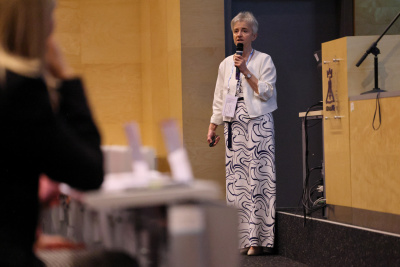
Fot. J. Kwiatkowski
On 2 July 2025, the conference proceedings moved to the modern building of the Faculty of Chemistry at the University of Gdańsk. The plenary lecture was given by prof. dr hab. Hanna Mazur-Marzec from the Faculty of Oceanography and Geography at the University of Gdańsk (a graduate of the Faculty of Chemistry). She talked about metabolites of aquatic organisms, including analogues of cyanobacterial metabolites and their pharmacological potential, as well as prymnesines - toxic metabolites of Prymnesium parvum (the so-called golden algae). Prymnesins were one of the causes of the ecological disaster on the Oder in 2022, and Prof. H. Mazur-Marzec was one of the first people to conduct toxicological tests on the Oder water during the crisis.
The plenary session and panel sessions were accompanied by a poster presentation. Visitors could also visit the stands of the conference sponsors and partners, set up in the lobby of the Faculty of Chemistry. An additional attraction was the opportunity to purchase clothing and gadgets bearing the logo of the University of Gdańsk at the mobile stand of the Sklepik UG, including unique seals, the sale of which supports the budget of the Hel seal sanctuary.
The second day also featured a discussion club entitled ‘Teaching in Analytics’ and meetings of teams of the Polish Academy of Sciences' Analytical Chemistry Committee.
Day 3 - PAS Analytical Chemistry Committee Awards
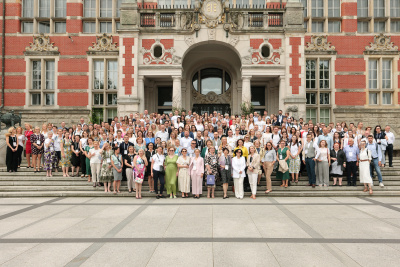
Fot. J. Kwiatkowski
The Faculty of Chemistry of GdańskTech was the host of the third day of the conference. The proceedings took place in the beautiful, historic Main Building of Gdańsk University of Technology. The plenary lecture entitled ‘Difficulties and challenges in the analysis of new environmental pollutants’ was given by prof. dr hab. inż. Tadeusz Górecki from the University of Waterloo in Canada. Further presentations were given during panel sessions. On 3 July, a poster session and meetings of PAS Analytical Chemistry teams were held, as well as a discussion club entitled ‘AI in analytics’.
In the afternoon of the third day of the event, the Award Ceremony took place, during which the winners of the PAS Analytical Chemistry Committee awards presented the results of their research, distinguished for their habilitation achievements (dr hab. Justyna Piechocka from the Department of Environmental Chemistry at the University of Łódź) and the best doctoral theses in the field of analytical chemistry.
Closing of the conference - 50th anniversary of scientific work by Prof. Bogusław Buszewski
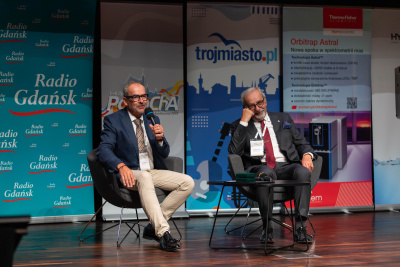
Fot. B. Jętczak
The official closing of PoKoChA 2025 took place on 4 July 2025 at the European Solidarity Centre. The first plenary lecture entitled Pharmacometabolomics - a new direction in bioanalytics. Current trends and challenges was given by the Rector of the Medical University of Gdańsk, prof. dr hab. n. farm. Michał Markuszewski. Prof. M. Markuszewski presented the latest research conducted by scientists from MUG on the use of metabolomics (comprehensive analysis metabolites) in pharmaceutical bioanalysis. A modern approach to this issue may contribute to better drug dosing, effective assessment of the risk of drug resistance in specific patient groups, and mitigation of the side effects of pharmacotherapy.
An exceptionally moving element of the last day of the conference was the 50th anniversary of the scientific work of prof. dr hab. Bogusław Buszewski, member of the PAS. It was led by the Rector of the University of Gdańsk, prof. dr hab. Piotr Stepnowski, who is one of the students of the distinguished jubilarian. Prof. Bogusław Buszewski gave a jubilee lecture entitled Reflections on the role of the stationary phase in separation techniques, in which he outlined his scientific career and his most important achievements in the field of chromatography and the role played by the stationary phase. He also pointed out that opinions that analytical chemistry has already passed its heyday are untrue: analytical achievements and tools are indispensable in all chemical research.
Prof. B. Buszewski identified underfunding and lack of time for in-depth scientific discussions, which inspire new research, discoveries and the search for new research approaches, as the main problems facing contemporary science.
‘Fortunately, we have such wonderful events as the Polish Conference on Analytical Chemistry,’ noted Prof. Piotr Stepnowski. ‘This is where we have the opportunity for such unrestricted, inspiring discussions.’
The plenary lectures closing the conference were delivered by prof. dr hab. Andrzej Dawidowicz from the Maria Curie-Skłodowska University in Lublin (Transformations of compounds in their chromatographic analysis procedures - hopes and challenges) and prof. dr Maria-Virginia Coman from the Babeş-Bolyai University in Romania (Separation Sciences - the Romanian-Polish Mutual Connection).
Organisational support in the areas of finance, law and personnel was provided by the Foundation for the Development of the University of Gdańsk.
More information about the conference can be found at: Polish Conference on Analytical Chemistry 2025 | Faculty of Chemistry, Gdańsk Tech.

